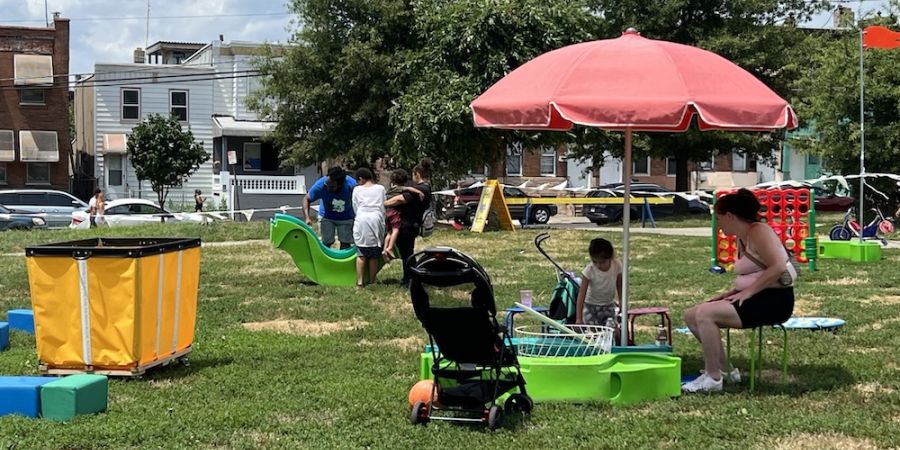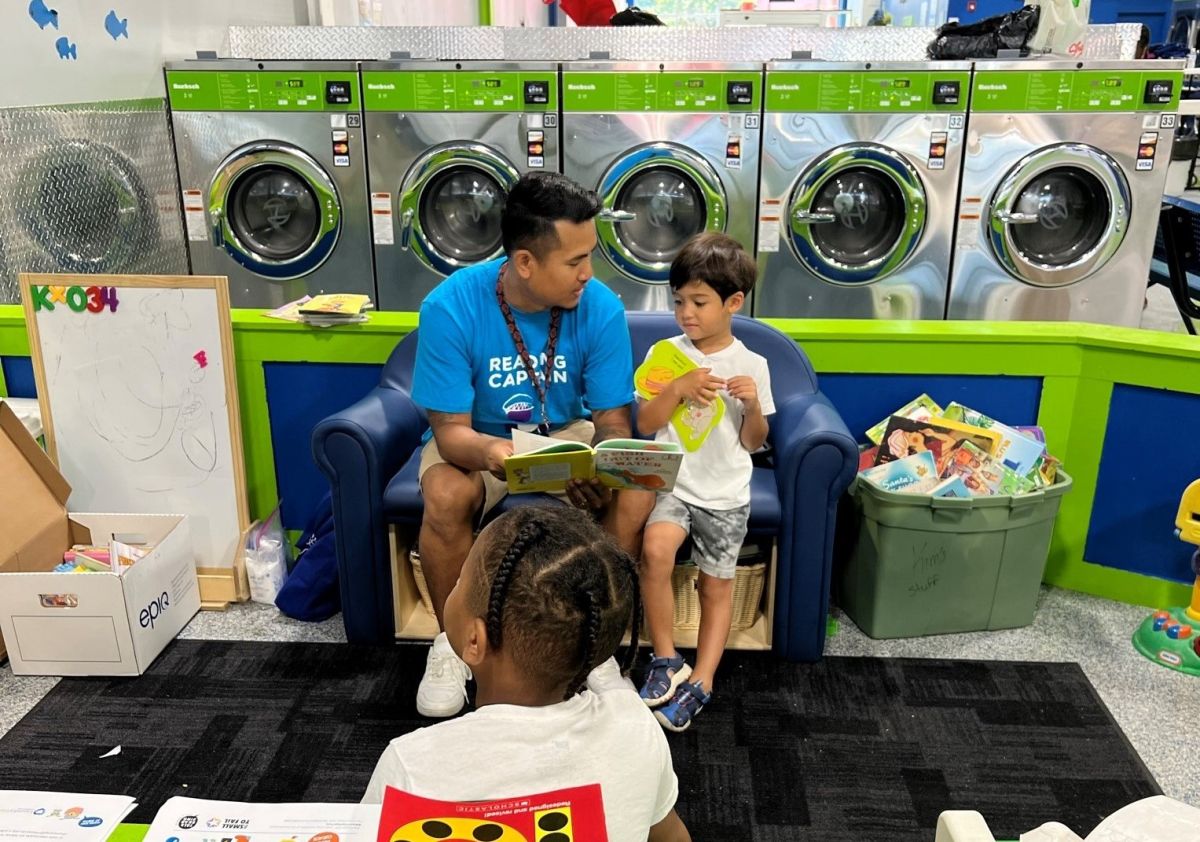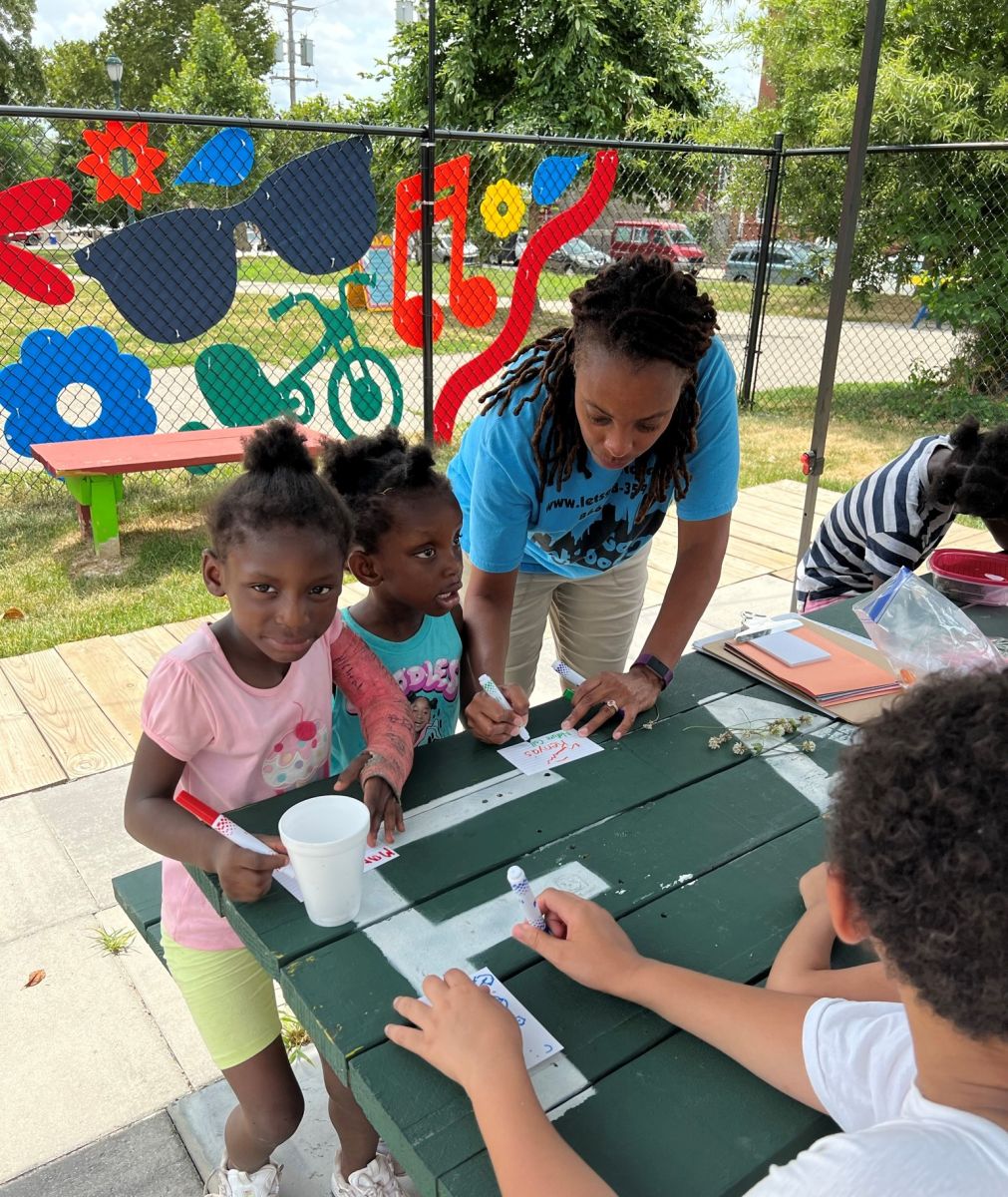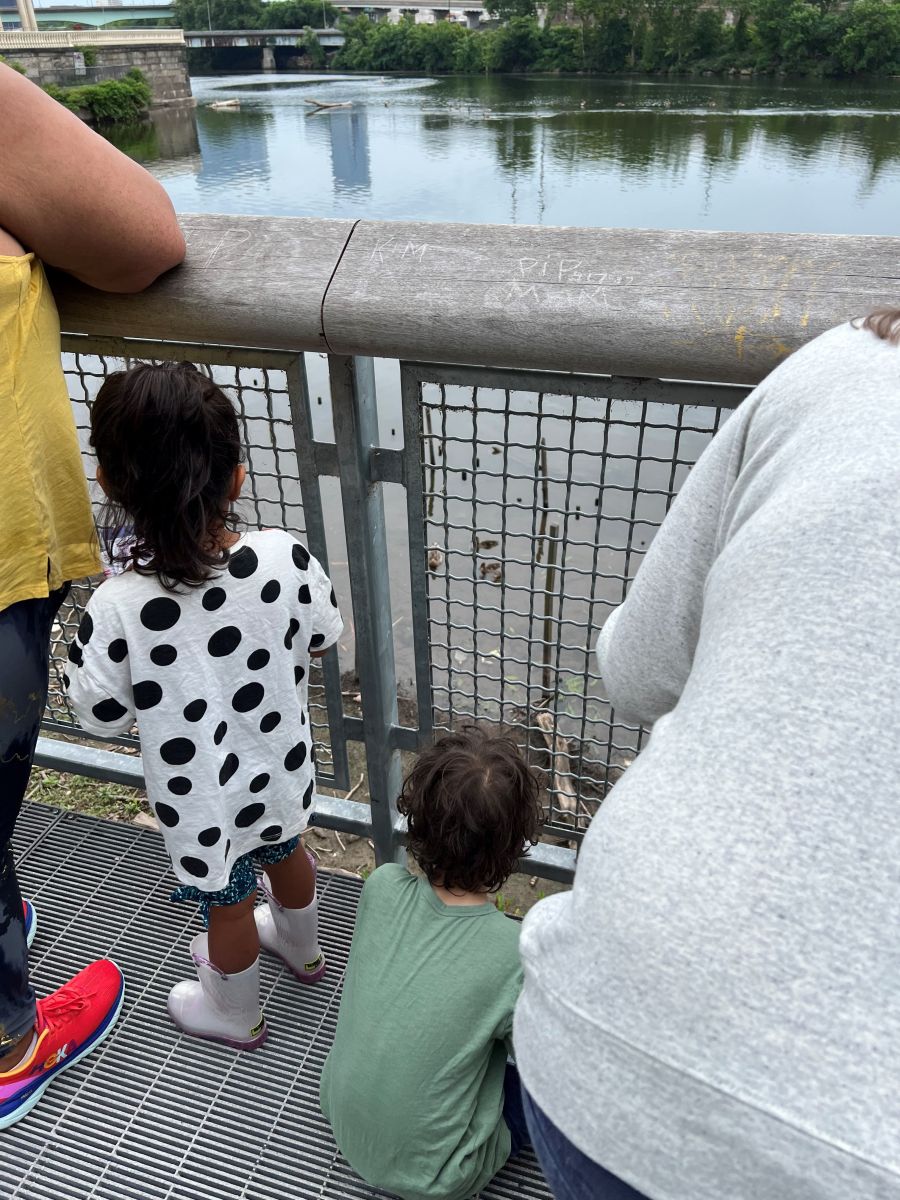Blog

Summer in the City: Building 6 Critical Skills Through Playful Learning
For many, summer is synonymous with play. It holds the promise that fun and play might spring from anywhere at anytime – whether the playground or neighborhood pool, a friend’s house or a local shop, a block party or lazy front porch afternoon. I love that learning, too, can happen in all of the places and situations that define summer in the city. The William Penn Foundation supports children’s early learning anywhere they are, not just in the classroom. The science of playful learning – how children learn through guided play experiences – is central to our approach and informs how summer fun can be enhanced to support learning goals.
Playful learning can help children develop skills needed for their early language development and to be successful in school and in life. The Playful Learning Landscapes Action Network refers to these skills as the 6 C’s: communication, collaboration, critical thinking, confidence, creative innovation, and content. Children need a range of experiences to help develop the 6 C’s, which is why we support a variety of summer learning experiences for young children and families.
I had the pleasure of visiting several summer programs this year, and I saw how each one incorporates learning opportunities that build each of these skills in children. Here, I’ve highlighted an example from each program, though all the programs exhibit ways to build many, if not all, of the 6 C’s!
1. Communication
If I asked you to name a few places where children could develop communication skills, I bet a laundromat would be low on your list. But laundromats are good places for young children to practice matching, sorting, and naming colors. Now, with the help of Read by 4th Reading Captains, three laundromats in Philadelphia also provide opportunities to help children learn how to express themselves. Over the past year, Too Small to Fail partnered with local laundromat owners to create play and learn spaces at the Laundry Café (400 W Allegheny Ave), Big G Laundry (162 W Chelten Ave), and 10th Street Laundry (1143 S 10th St).
Reading Captains visited those spaces weekly this summer to read with children and connect families with reading resources. By asking questions about the books they were reading and asking children to predict what would happen next in the story, Reading Captains created a reading experience for little learners in the laundromat, helping children build language and communication skills.

A Reading Captain facilitates reading time for children who are in the laundromat with their caregivers.
2. Collaboration
Collaboration takes time to develop. Children begin by playing alone, then play side by side with other children, and slowly learn how to build something together. This is an important skill for learning to be successful in school, the workplace, and in our society.
This summer, Philadelphia Parks & Recreation worked with a variety of partners to create Playparks in three Kensington parks: Hissey Park, Harrowgate Park, and McPherson Park. Playparks provided a variety of equipment for children of all ages and their families, including tricycles, sprinklers, and ring toss and connect four games, as well as word-making activities with letter tiles. (I heard an ice cream truck even visited a few times!)
On a scavenger hunt facilitated by Let’s Go Outdoors, groups of children worked together to find different types of leaves and plants. Collaboration was key to success as children had to spread out to find different things in order to check off all the items on the list before the other group did. I heard a lot of laughter and children confirming their discoveries with one another.
Playparks wouldn’t have been possible without collaboration at the adult level. Parks and Recreation partnered with Free Library of Philadelphia, community organizations, Tiny WPA, Fab Youth Philly, and the Police Department to offer learning-rich programming daily throughout the summer.

Children work on an activity together at a Playpark.
3. Critical Thinking
Critical thinking, or the ability to use knowledge to challenge what one is learning and thinking, is a key skill we develop in childhood that we use our whole lives to make decisions and draw conclusions. Luckily, Philadelphia has Tree House Books to help children practice this skill. Tree House Books, located in North Philadelphia, offers a variety of reading-focused programming for youth of all ages. One such program, Words on Wheels, provides a delivery of free new books to children three times during the summer. (Teens and adults can sign up for their own book deliveries too!)
For children between the ages of five and eight, Tree House Books provides at-home activities that help children think critically about what they read, with support from an adult at home. For example, one activity prompted children to think about how the book they just read would be turned into a movie. Children were asked to create a poster for the movie and think critically about the number of roles they would need, who would play those roles, and how to depict the book in a visual format to audiences.
Children can also work one-on-one with a literacy specialist at Tree House Books to help them grow their reading skills.
The team at Tree House Books delivers books to children's homes along with activity packets that facilitate critical thinking about the story.
4. Confidence
The PlayStreets program is a great example of confidence building in children. Established more than 50 years ago by Philadelphia Parks & Recreation to facilitate summer meal delivery and safety when schools are closed, the PlayStreets program has evolved to incorporate playful learning.
Fab Youth Philly’s teenage Play Captains and teams from the Free Library of Philadelphia work on playstreets in Kensington and West Philadelphia for six summer weeks to lead children in a variety of games that help build literacy, math, and social-emotional skills. Play Captains model and then provide opportunities for children to take leadership roles in the games, leading their peers in new experiences.
Both children and Play Captains build confidence through their experiences on PlayStreets. During their summer experience with Fab Youth Philly, Play Captains receive training in leadership, playful learning, and facilitation skills.
Play Captains work on PlayStreets in the summer to lead children in games and activities designed to help them learn and build confidence as a leader.
5. Creative Innovation
Creative innovation helps us think of new ways to solve a problem. Developing this skill starts with exploring the world around us. This summer, seven of Philadelphia’s cultural institutions, led by the Barnes Foundation, hosted a variety of programs in communities across the city to expose children to new ideas and experiences. In Malcolm X Park, the Barnes Foundation and Clay Studio taught children how to create animals out of clay. The Clay Studio taught a few strategies for working with clay, which the children used to solve various challenges, like when a clay ear would not attach! The next time the children interact with clay, they can draw on their experience in the park to create new and more advanced projects.
Activities led by art institutions in local parks provide ways for children to practice being creative.
6. Content
The last of the 6 C’s is content knowledge, which helps children make connections and understand information in a deeper way. It includes academic skills in science, reading, and math. Younger children begin by acquiring early knowledge about a topic. For example, young children understand that dogs are different from cats. As they grow and acquire more facts and information, they begin to make connections and choose to learn more in certain areas. For example, a child interested in dogs may learn facts about specific dog species.
The Fairmount Water Works helped children expand their content knowledge this summer. Families participated in nature walks on the banks of the Schuylkill River and observed local plants and animals. A guide drew children’s attention to the ducks and geese in the river and helped them learn the difference.
The Academy of Natural Sciences also provided children with in-person science experiences in the park this summer. Staff invited children to touch and examine a tortoise shell and skull with magnifying glasses. As children examined the objects, they learned new information about tortoises – building their vocabulary and background knowledge, which also supports early literacy skills.

Children build content knowledge about nature and animals in programs run by the Academy of Natural Sciences and Fairmount Water Works.
Looking Ahead
While this summer has come to an end, playful learning doesn’t have to! Children need a range of experiences to develop the 6 C’s, and, ideally, those experiences are year-round. One of my favorite resources for supporting children’s learning and development is the Free Library of Philadelphia’s Reading Champs Guide, which provides a range of fun, no-cost, no-equipment activities designed to support the development of reading skills.
Another helpful resource is the City of Philadelphia’s OST Program locator that helps families find afterschool and summer programs for elementary, middle, and high school students. If you’re an OST provider, you can add your program information to the locator (learn more here).
If you’re interested in learning more about the 6 C’s, please visit the Playful Learning Landscapes Action Network website and their playbook.
Subscribe To Our Blog
Subscribe to our updates and always be in the know!
